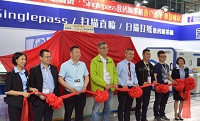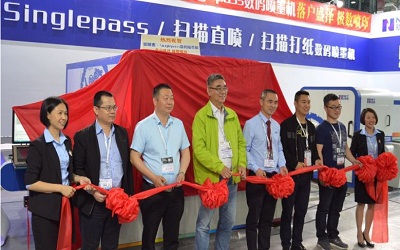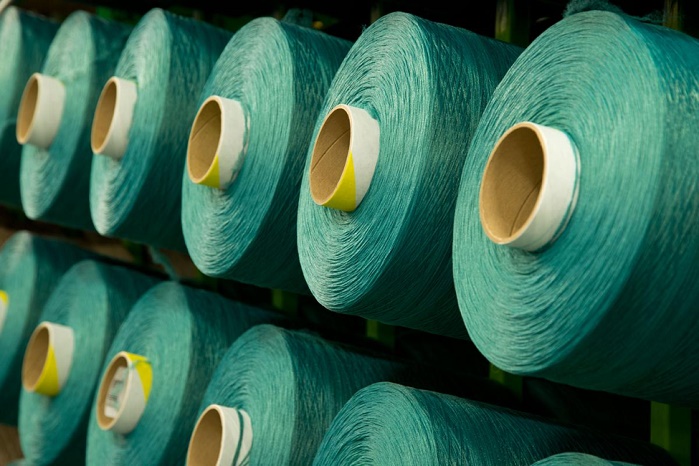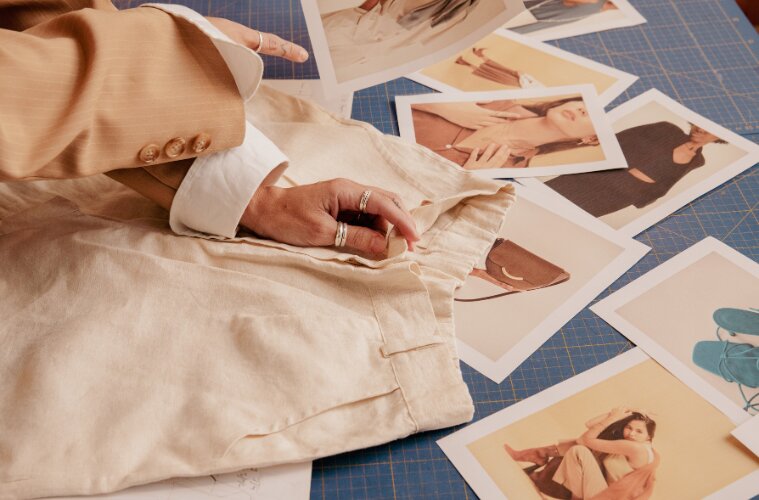FW
Ensuring the continuation of EU’s Generalised Scheme of Preferences with countries such as India and Vietnam is a more pressing priority for the UK rather than securing new deals. The cost of importing clothes could fall by up to 12 per cent, and leather handbags by up to three per cent, if the UK can secure new deals with countries such as China.
GSP countries account for 38 per cent of total general merchandise imports into the UK, of which clothing and footwear makes up 96 per cent. The EU accounts for just 12 per cent of total general merchandise imports, of which clothing is just more than half.
Countries such as China are classed as most favored nation (MFN) states with which the UK has no current trade agreement beyond World Trade Organisation rules. MFN countries account for 49 per cent of total general merchandise imports, of which clothing and footwear makes up 61 per cent. As a member of the EU, the UK does not pay tariffs on imports from certain countries as of now.
The EU does not have a trade deal in place with China. As a result, if the UK does not strike a deal with China, consumers will be no worse off – but there are opportunities to bring down tariffs if a deal is struck.
With the US almost certainly out of the TPP, other members of the grouping are assessing their options. Countries like Australia, Japan and Chile have been discussing the idea of taking the TPP forward. These countries had invested years on end in negotiating a high-quality agreement to benefit the Asia-Pacific region which is hungry for trade and they are unwilling to see their efforts go waste.
Vietnam could have gained 14 per cent under the TPP as it would have become the hub of low-end manufactured goods like textiles and garments. Australia has decided to focus on bilateral agreements with the Pacific alliance states of Mexico, Chile, Columbia and Peru, and also pursue agreements with India, Indonesia and the EU.
The global trade environment could transform with the focus of countries being on bilateral trade deals and what suits them best. The US is negotiating bilateral deals with Japan, China and the EU. The TPP would have covered 40 per cent of the global GDP and nearly a third of world trade. The US could have accounted for nearly 60 per cent of the TPP’s GDP. The deal could also have unleashed potential gains of as much as $1.9 trillion in the Asia-Pacific region through free trade.
After a disappointing end to 2016 and a sluggish beginning to 2017, spinners in India are finally beginning to regain some optimism. They have been getting a steady stream of orders for the past five or six weeks and enquiries are on the rise.
Ring-spun and air-jet yarns are getting a lot of attention. Positions are beginning to get a little tight again. Orders for open end yarns, in general, are still a bit light, but are improving. Interest is particularly high in specific categories like organic products, fire retardant yarns and products used for filtering. As the oil industry continues to recover, these categories may continue to grow.
One area that has not revived much, however, is home furnishings. But even here spinners expect business to pick up substantially in the near future. Despite renewed optimism among spinners, there are still a few concerns. Pricing and margins top the list. They feel selling all the yarn they can make is of no use, if profits are low. Margins continue to be a lot thinner than they would like. Spinners are doing everything they can to keep prices as low as possible but in a lot of cases, they have to rely on value-added advantages to create differentiation — quality, delivery and service.
New manufacturing yarn processes and finishes are pushing towards a more sustainable delivery with a reduction of water. The textile industry uses billions of liters of water throughout all processing from dyeing to specialty chemical finishes that are applied to textiles in water baths to scouring, bleaching and softening. Through the Detox campaign Greenpeace has highlighted the damage of water pollution and use from the textile chain has had on the environment.
Greenpeace is campaigning to stop industry poisoning our water with hazardous, persistent and hormone-disrupting chemicals and the textile industry is embracing change in eco-friendly chemical use as well as water conservation. The importance of sustainability was featured at ISPO Texttrends in February and is now become a custom than a passing fad as the textile industry looks to new processes in reducing water and energy.
Textile manufacturer Schoeller and auxiliaries and dyes specialists at Textilcolor have developed Ecodye, a new auxiliary concept used, in particular, in polyester dyeing processes. The technology accelerates the dyeing process and contributes to cutting costs, while at the same time helping to preserve the environment with a low level of demand on resources. Ecodye also improves the dyeing levelness in polyester textiles. Spots and dye agglomeration are almost completely avoided, and the precipitation on the goods that arises as a result of polyester oligomers are no longer evident. On the other hand Ecodye provides good shade stability and avoids reproduction problems from batch to batch, reducing the rate of double staining and increasing the capacity utilization and productivity of the dyeing mill on a long-term basis.
SpinDye, which is a new company exhibits at ISPO this year, the company offers a different approach in the production of synthetics, in particular nylon and polyester. Final laundering of fabrics is becoming a process of the past. An innovative collaboration held at the recent Kingpins Show in Amsterdam for denim highlighted the company’s technology in this area, in creating finishes that have now water or chemicals involved. The Laser Blaze machine creates graphics on surfaces using light, whilst NoStone is a system that create stonewash effects with the use of pumice stones through ozone finishing.
Italian company specialising in high-end fabrics Brugnoli, has launched a new high-quality, zero-kilometer fabric line based on recycled yarn called B.Recycled. In order to guarantee fabrics with exceptional quality and undisputed performance, Brugnoli has a partnership with the Italian company Fulgar.
This zero-kilometer product line means the supply chain is monitored and certified throughout. The creation of B.Recycled by Brugnoli starts with a raw material recycling process carried out entirely at Fulgar laboratories and mills. Work then continues at the Brugnoli plant, where all the fabrics are created, produced and dyed in the same location.
In 2015 Brugnoli broke new ground with the launch of its Br4 technology for the creation of bio-based fabrics. The eco-sustainable production process enables the creation of extremely high-quality fabrics made using Evo by Fulgar, a bio-based yarn obtained from castor bean. Evo by Fulgar is an eco-friendly yarn that aims to provide total comfort and technical performance combined with light weight, stretch, breathability and fast drying, plus naturally thermo regulating and bacterio static properties.
Bangladesh Denim Expo will be held on May 17 and 18, 2017. This is an international platform showcasing the wealth of opportunities available in Bangladesh covering all aspects of the denim supply chain with exhibitors displaying fabrics, garments, threads, machineries, finishing equipments and accessories.
This season’s expo will deliver a dynamic environment to welcome all denim lovers and offer the perfect platform to develop new business relationships. The expo, with the participation of 12 countries and 58 exhibitors, will help promote the importance of sustainability, addressing environmental and ecological issues that affect business apart from promoting ways to improve and develop best working practices.
Participating countries are: Bangladesh, Brazil, China, Germany, Hong Kong, India, Italy, Japan, Pakistan, Spain, Turkey and San Marino. The event will feature the platform, Sustainable Apparel Forum, which is the first-ever forum in Bangladesh which will present the future potential, sustainability and competitiveness of the apparel industry in the country. In 2015, Bangladeshi denim products made up 22.88 per cent market share in the EU and 11.35 per cent share in the US.
Annual global denim sales amount to more than $56 billion, which is expected to touch $64 billion by the end of 2020.
Italian premium denim manufacturer Italdenim participated in the latest edition of Kingpins Amsterdam through a new company founded in December 2016, Pure Denim. And Gigi Caccia, Co-owner of Italdenim and Pure Denim along with Ilaria explains they strongly believe in the importance of sustainable denim production. He further explains in the last few years the company had to fight against aggressive low-price competitors and indebtedness caused by strong investment in adequate machinery following new sustainable productive standards.
The Caccia brothers want to rescue Italdenim, the company that continues producing denim for their group. Their aim is to once again touch their yearly target of making 8 million meter denim. Caccia further adds the company believes in the importance of sustainable production. During Kingpins, they showcased a completely new denim collection produced as per new smart and environmentally-friendly techniques.
Among the new environmentally-friendly products offered by the new company, was ‘Smart Denim’, a light gray denim that employs an innovative dyeing technique that uses only recycled graphite combined with Kitosan yarn, a bio-based finishing substance derived from crustaceous skin, that requires nor water nor chemicals when finishing denim.
The graphite-based dyeing technique was developed by WRAD a company co-founded by Matteo Ward, visionary entrepreneur sensitive to sustainable issues and involved in recycling graphite remains from industrial use in partnership with Perpetua, a pencil brand that is 100 per cent made with recycled graphite.
Gigi Caccia further said they believe recycling graphite for dyeing denim, like every new eco-friendly denim technology is the beginning of a new revolution in this market one can compare it to the birth of electric car in the car industry.
The 10th International Pakistan Textile Machinery and Garment Technology (IGATEX) 2017 exhibition opened its doors at the Karachi Expo Centre today. Exhibitors and organisers are optimistic about achieving their targets as more than 550 international and local manufacturers of textile machinery and technology from 35 countries are showcasing their latest products at the four-day exhibition.
There are 73 companies from Italy, 70 from Germany, 50 from China, 25 from Turkey and 80 from the host country Pakistan displaying their latest products. The highlight of this exhibition is some 20 companies from India are also participating through their representatives.
Pakistan is in a dire need of modern technology which is lacking in the frontline business. The country is lacking in modern technology which is causing an imbalance in garment industry, the recent example is Bangladesh although a cotton deficit country did trade worth $35billion in the last year.
The maiden IGATEX in 2002, had around 200 companies despite the threat of terror attacks and lack of law and order at that time and the number has increased to 550 in 2017.

Foshan New King Time Machinery (New King Time), also known for its NKT brand of machines, sold its first ‘Single Pass’ textile digital machine at the just concluded edition of TPF 2017. This latest machine was bought by Suzhou Super Digital Printing Technology. The event witnessed both by domestic and foreign media and visitors at TPF, created a lot of enthusiasm and excitement about the Single pass machine.

Single pass is the latest textile digital machine, known for its speed. The machine is being seen as the next level digital technology and can be termed as a bridge technology between existing digital machines and conventional rotary machines. It is available in various widths. As of now, only a handful number of these machines are installed, perhaps less than 15 across the world. The price range of $1.0-1.6 million, is much less compared to similar Italian machines.
NKT also displayed their scanning machines which can print both on paper and fabric, with disperse; reactive ink etc, this will be put into production soone. The company is looking to set up service points in China and abroad. In 2017, NKT plans to make inroads in the textile industry with a variety of digital printing machines.
As per latest figures from the Pakistan Bureau of Statistics (PBS), there has been 6.2 per cent rise year on year in textile and clothing exports which touched $1.064 billion in March this year, mainly driven by value-added products such as garments. Exports of readymade garments registered an increase of 19.5 per cent and knitwear rose to 5.4 per cent. Exports of bed-wear and towels increased 5.4 per cent and 15.8 per cent respectively.
Cotton yarn exports also saw a rise year-on-year of 5 per cent. A decline in exports of cotton cloth and yarn (other than cotton’s) was recorded at 5.5 per cent and 26.9 per cent.The receipts from silk, art and synthetic textile rose 2.7 per cent and the ones from raw cotton declined 2.9 per cent year on year. Exports of items like tents, canvas and tarpaulin rose by 71.8 per cent and made up articles excluding towels increased 16 per cent in the current nine months of this FY 2016-17.
The government in the preceding year had introduced a policy which provided a 4 per cent rebate on exports of readymade garments subject to a 10 per cent rise over previous year, 1 per cent on fabric and 2 per cent on home textile. The exporters were paid out Rs 2.5 billion in the last financial year by the government due to the introduction of this policy. This has made a steady growth to increase the value of Pakistan’s growth within four months.











